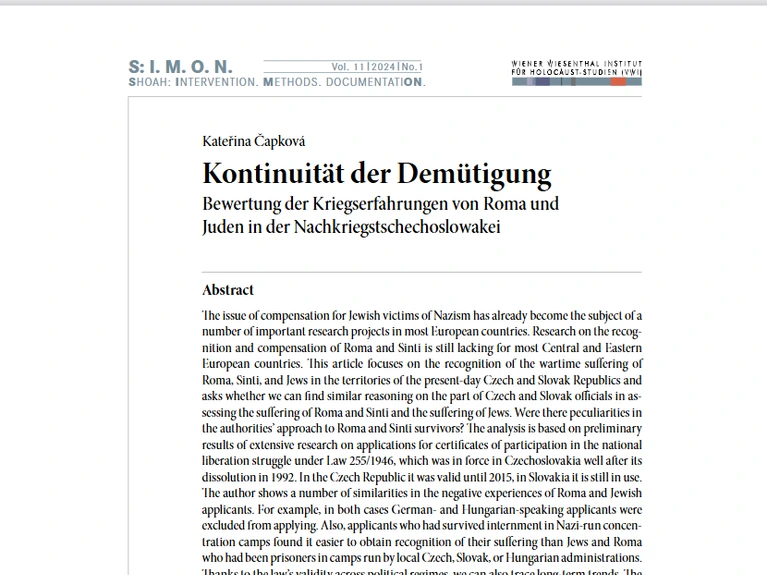
Kontinuität der Demütigung. Bewertung der Kriegserfahrungen von Roma und Juden in der Nachkriegstschechoslowakei by Kateřina Čapková
The issue of compensation for Jewish victims of Nazism has already become the subject of a number of important research projects in most European countries. Research on the recognition and compensation of Roma and Sinti is still lacking for most Central and Eastern European countries. This article focuses on the recognition of the wartime suffering of Roma, Sinti, and Jews in the territories of the present-day Czech and Slovak Republics and asks whether we can find similar reasoning on the part of Czech and Slovak officials in assessing the suffering of Roma and Sinti and the suffering of Jews. Were there peculiarities in the authorities’ approach to Roma and Sinti survivors? The analysis is based on the preliminary results of extensive research on applications for certificates of participation in the national liberation struggle under Law 255/1946, which was in force in Czechoslovakia well after its dissolution in 1992. In the Czech Republic it was valid until 2015, in Slovakia it is still in use. The author shows a number of similarities in the negative experiences of Roma and Jewish applicants. For example, in both cases German- and Hungarian-speaking applicants were excluded from applying. Also, applicants who had survived internment in Nazi-run concentration camps found it easier to obtain recognition of their suffering than Jews and Roma who had been prisoners in camps run by local Czech, Slovak, or Hungarian administrations. Thanks to the law’s validity across political regimes, we can also trace long-term trends. The most notable of these is the rejection and criminalisation of some Roma applicants, who faced humiliation both under the communist regime and in the democratic period until the beginning of the 21st century.